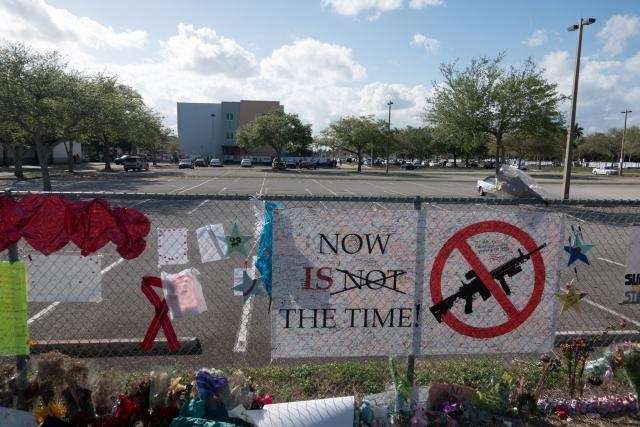The amendment was designed in part to increase support from many parents, law enforcement officials and legislators in both parties who object to arming teachers, as well as from Governor Rick Scott, a Republican also on record as opposed to the idea.
The exclusion was adopted by voice vote as part of a package of legislation the Senate passed a short time later, 20-18, to raise the minimum legal age for buying all guns in Florida to 21 and impose a three-day waiting period for any gun purchase.
The minimum age for handguns nationally is already 21. But a person can be as young as 18 to buy a rifle in Florida, with no waiting period.
Authorities say the man charged with killing 14 students and three adult educators at Marjory Stoneman Douglas High School last month in Parkland, Florida, was 18 when he legally purchased the semiautomatic AR-15-style assault rifle used in the massacre.
The Senate-passed bill represents a break with the National Rifle Association gun rights lobby, which has resisted proposals to raise age limits or impose new waiting limits.
The bill now moves to Florida’s Republican-controlled House of Representatives.
A House committee last week approved similar legislation, including a provision allowing local sheriffs to create voluntary programs for deputizing school personnel as armed “marshals,” subject to school district approval and special training. U.S. President Donald Trump has voiced support for such a plan, also advocated by the NRA.
As amended in the Senate bill, classroom teachers would be excluded from carrying guns to work unless they are part of the Junior Reserve Officers’ Training Corps program, or are members of the U.S. military or former police officers. Other school personnel would be eligible to participate.
A spokeswoman for the governor said Scott, who was endorsed by the NRA and received its highest rating for supporting gun rights, would review the bill in its final form before deciding whether to support or oppose it.
More about: North-Korea South-Korea
















































